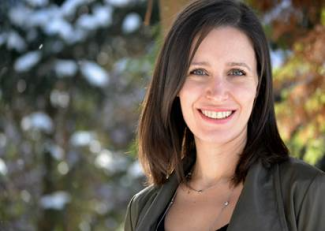Event
Musical Grammar and Lyrical Learning: Cato’s Distichs and Medieval Latin Song
Assistant Professor Mary Channen Caldwell
Please join us for the virtual colloquium presented by the Penn Department of Classical Studies on Thursday, October 29, 2020 at 4:30 when Dr. Mary C. Caldwell, Professor of Music, University of Pennsylvania, will present her paper:
“Musical Grammar and Lyrical Learning: Cato’s Distichs and Medieval Latin Song”
Widely acknowledged as emerging from clerical, monastic, and pedagogical communities, the poetry of medieval Latin song was informed by the vocabulary, grammar, and rhetoric emanating from these spheres of knowledge and practice. In this talk, I explore the musical and poetic manifestation of these spheres in grammatical citation, a practice in which noun and verb paradigms poetically shape and structure the strophes of Latin songs. Grammatical citationality in Latin songs, whose poetry otherwise chiefly explores festive, devotional topics, serves as a signal of their implicitly disciplinary and didactic function. With grammar operating as an emblem of correct, moral behavior, these sacred songs performed morally and spiritually upright Christian behavior for singers and listeners. My central focus will be on a capstone to this sung didacticism: Cum animadverterem, a thirteenth-century song that uniquely links grammatical citation with a quotation from Cato’s Distichs.
Dr. Caldwell’s website can be found here: http://www.marychannencaldwell.com/
Mary Channen Caldwell’s research on repertoires of European vocal music ca. 1100-1600 engages with the complementary disciplines of historical musicology and medieval studies and is driven by interests in the cultural, ritual, textual, and material aspects of music and its production, reception, and transmission. Across her research and teaching, Caldwell employs methodologies that recognize the importance of notes on the page (incomplete as they are in pre-modern sources) while seeing these abstract reflections of music as part of complex systems of cultural meaning and history. While music is always at the core, her writing and teaching connect with a range of interrelated disciplines, including manuscript studies, ritual studies, literary theory, theology and exegesis, liturgiology and hagiography, and theories of time and temporality. She also continues to cultivate a secondary research area in premodern movement and dance studies. Publications on a range of topics related to these interests appear in Early Music History, Plainsong & Medieval Music, and the Journal of the Royal Musical Association, as well as in edited volumes, including one published by the Medieval Institute’s Early Drama, Art, and Music Monograph Series.
Registration is required for Penn CLST colloquia this semester, you need only register ONCE for the semester:
After registering, you will receive a confirmation email containing information about joining the Zoom meeting.
PLEASE CHECK YOUR SPAM FILTER if you do not get an email in your inbox.
